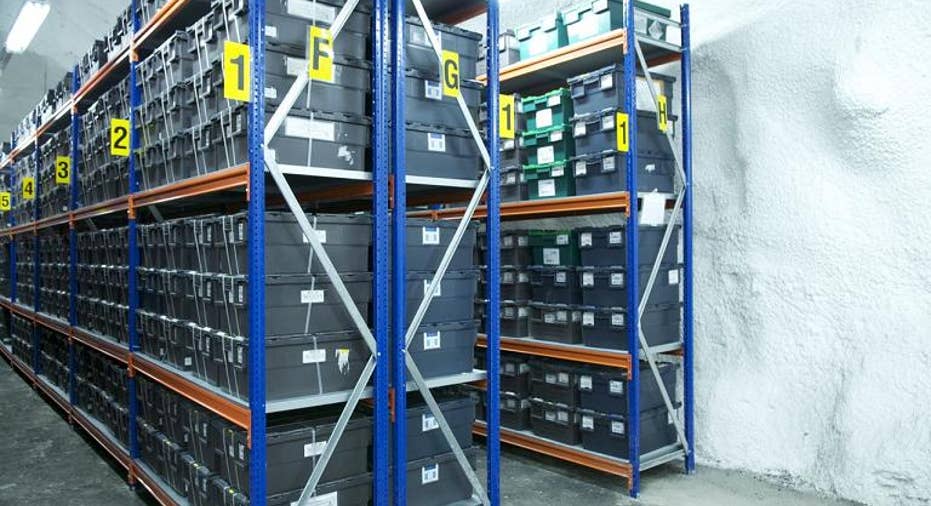Insurance for Your Stuff Placed in Storage

When IT program manager Dan Renfroe moved to Washington, D.C., he stored his furniture and other belongings in a ground-floor self-storage unit in the nation's capital until he could find an apartment.
It was an unfortunate decision.
"D.C. had a heavy summer rain storm, and the storm drains backed up," he recalls. "I ended up with over an inch of water in my unit. My mattress functioned as a giant sponge, and a number of other articles were damaged as well. It was a soggy mess."
Fortunately, Renfroe had taken his insurance agent's advice and kept his renters policy in force during the move. "I was able to recover from that with the help of my insurance," he says.
When You Store it, Make Sure it's Insured
According to the Self Storage Association, or SSA, nearly 10% of American households currently rent a storage unit. If you're new to self-storage, your first call should be to your insurance agent to see if and how your personal possessions will be covered, says Loretta Worters, vice president of the Insurance Information Institute, or III.
"Typically, standard homeowners and renters insurance policies do include off-premises property protection for theft and damage from fires and other disasters," she says. "But to what extent the coverage applies to a storage facility really depends on the insurance company."
"Generally, things like flooding, earthquakes, and mold and mildew if the storage unit is poorly maintained are not usually covered," Worters adds.
Home Policies Have Limits for Storage
If your homeowners or renters policy does take care of your stuff stored off-premises, pay close attention to the coverage limit for those items.
"Typically, your off-premises coverage is 10% of the overall amount of your homeowners insurance coverage," Worters says. "If you don't have a lot of stuff in the storage facility, you're probably fine. But if you're storing expensive items, you should check with your agent to see if you can get higher limits."
While you're talking with your agent, see if you have cash-value or replacement-cost coverage for your stored belongings. In the event of loss, a cash-value policy would provide you with only the depreciated value of each item, while a replacement-cost policy would pay to replace the items at today's prices.
"It will cost you about 10% more for replacement coverage, but you're getting a better value in the long run if you have to replace your furnishings," says Worters.
The Storage Facility Might Offer Insurance
What if you don't have homeowners or renters insurance? Most but not all self-storage facilities offer coverage designed to protect your stored contents, according to Jim Dinardo, an industry consultant and SSA board member. Operators report that as many as 3 out of 4 renters spring for this coverage -- in some cases because they have no other choice.
"You can't require people to take out the insurance, but you can make it a requirement of your rental agreement that they have some coverage," he explains. "They can get it somewhere else or buy it from you."
Coverage limits might apply as part of the rental agreement. It could say, for example, that you agree not to store contents worth more than $5,000. "The reality is, (operators) know that renters do store contents that are worth more than $5,000, but they like to have it in writing that the limit you can recover is $5,000," Dinardo says.
With a storage facility's coverage, don't expect all the bells and whistles of a homeowners policy, especially where weather-related damage is concerned.
"Sure, operators insure their property; they have business and liability coverage," Dinardo explains. "But if a hurricane comes through and blows the place away, the people who rent the units are responsible for their own insurance and their own contents."
Be Alert for Risks Before You Store
The Insurance Information Institute recommends that you check out a storage facility before you move your stuff in to make sure it's safe and secure and has a permanent, reliable pest and rodent extermination contract in place. As for valuables, consider a bank safe deposit box for jewelry and an endorsement or "floater" on your homeowners or renters policy to cover the loss of artwork and collectibles.
If you're planning to use a portable on-demand storage unit (one of those "PODS") in your driveway during a move or remodel, good news: Its contents are likely covered by your homeowners insurance the same as items in storage are, says the III.
Once your insurance is squared up, take photos or video of the things you're storing; the documentation will save time in the event of a damage claim. "As it's going out the door, capture it with your camera, and it's done," Worters says.



















